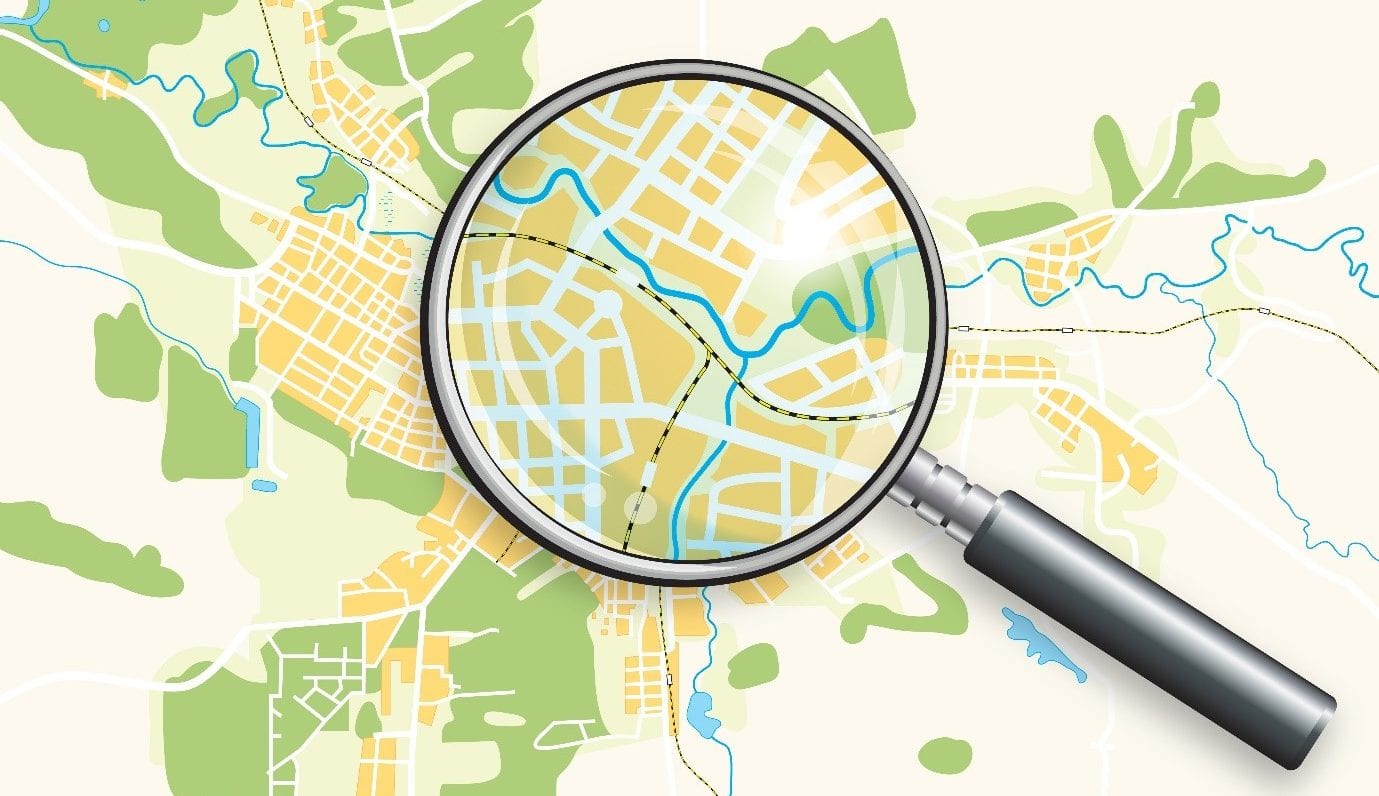When choosing a business location, there are many factors to consider.
Depending on your business type, budget, and local environment, selecting the perfect spot for your business can be an overwhelming task.
To ensure you choose the best business location for your needs, here is a comprehensive guide covering everything from foot traffic to zoning regulations.
Factors to Consider When Choosing a Business Location
Here are a handful of considerations when you’re choosing a business location.
Decide Based on Your Business Type
The type of business you’re starting should be the first factor to consider when choosing a location.
For example, a restaurant should look for an area with high foot traffic and nearby attractions, while a manufacturing plant might prioritize easy access to transportation or large warehouses. Knowing what type of business you’re running will help narrow down your choices.
Here are five common types of business locations to consider:
Retail Store
Office Building
Industrial Space
Restaurant/Cafe
Home Office
Virtual Office
Pro Tip: A cheap virtual office might be a great decision if you’re just starting a business and need a physical address!
Watch Your Budget
It’s also important to factor in how much you can afford to spend on a business location. Consider the cost of rent, utilities, maintenance, and taxes.
Are there any additional fees or special requirements? Create a budget and stick to it to make sure your business location remains affordable.
How to create a budget:
• Estimate your expenses
• Set a realistic budget
• Research potential locations and their costs
• Compare your options and select the best one
Consider Foot Traffic
Foot traffic is critical for running a retail store, cafe, or other customer-facing business.
You want potential customers to easily find your business and get to it without any hassles.
Choose a location with easy access to transportation, highways, and other types of roads.
Consider Safety
Safety should be a priority when choosing a business location.
Check for crime rates in the area, especially if your business will be open late or needs additional security measures.
Location safety is essential for the following reasons:
• Protects customers and employees
• Reduces the chance of theft or vandalism
• Increases customer trust and gives them peace of mind
Here’s how to find a safe location :
• Research crime statistics in the area
• Talk to locals and businesses nearby
• Take a tour of potential locations during different times of day
• Look for areas that are well-lit and monitored by security cameras

Local Demographics
Knowing your local demographics is key when it comes to choosing a business location.
Understand the population, age range, and income level of the people in your area to get an idea of your potential customers.
This will help you determine what type of location they would find most convenient.
For example, a particular area may be populated with mostly young professionals, so having easy access to public transportation or nearby cafes and restaurants would be ideal.
Available Resources
Consider local resources when selecting a business location.
Do you need access to warehouses, parking, or other types of infrastructure?
Are there any available incentives for businesses in the area? What about educational opportunities for employees? Knowing what type of resources are available can help make the decision-making process easier.
Zoning Regulations
Business locations are subject to zoning regulations, which vary from state to state and even from city to city.
Do your homework and comply with all applicable laws and regulations before deciding on a location.
This is especially true for the following types of businesses:
• Health care facilities
• Automotive-related businesses
• Restaurants and bars
• Retail businesses
Tax Laws
Tax laws differ by state and county, so make sure you understand the tax implications of setting up a shop in a particular location.
Research any potential incentives or benefits for businesses in the area.
Here’s a few tips on researching tax laws in your area:
• Consult a tax attorney or financial advisor
• Read up on state and local laws
• Ask local businesses about their experiences
Infrastructure and Transportation
The location of your business can affect its success, so make sure to consider infrastructure and transportation when choosing a business location.
You want customers to have easy access to your business, so consider things like public transportation and parking availability.
Look for locations near major highways or other thoroughfares that will make it convenient for customers to reach you.
You should also consider the available resources, such as internet speed and bandwidth.
Consider Your Brand
Your business location can affect your brand image, so choose a place that reflects your values and goals.
For example, if you’re running an eco-friendly business, choosing a location with access to renewable energy sources or near green spaces would be ideal.
If your brand is upbeat and famous, make sure you choose an area with lots of foot traffic, like a shopping center or main street.
How to Research Your Business Location
Research is an essential part of finding the right business location. Here’s how to get started:
• Research local demographics
• Look into available resources and infrastructure
• Learn about zoning and tax laws
• Consider transportation and convenience
• Think about your brand image
Researching Local Demographics
Start by researching the local demographics in the area you’re looking to set up shop. You can use online resources, such as census data, to get an idea of who lives in the area.
This includes age range and income level.
You can get started by checking out the U.S. Census Bureau, and then using additional resources to get more detailed data about the local population.
Researching Resources and Infrastructure
Once you know the local demographics, research what resources are available in the area.
Look into transportation, parking, internet access, and other infrastructure needs.
This can help you determine if a particular location is ideal for your business.
Try and pick a location that best meets your business requirements.
Researching Zoning and Tax Laws
Before you decide on a location, research zoning and tax laws in the area.
Check with local government offices to find out what types of businesses are allowed in certain areas and any incentives or benefits for companies in the area.
Conclusion
Choosing the right business location is a big decision, but with the proper research and planning it doesn’t have to be an overwhelming process.
Consider your budget, foot traffic, safety, demographics, resources, zoning regulations, tax laws, and infrastructure when choosing a business location.
We hope this helps! Let us know if we missed anything in the comments below.
Frequently Asked Questions
Choosing the best location for your business is an important decision that can have a major impact on your company’s success.
There are many factors to consider, such as access to customers, available resources, and the local market. Location strategy for business should also be taken into account when selecting a new location.
What factors should be considered in a location decision?
When considering the best location for your business, there are several key factors to consider. These include:
• Access to customers- Is the area easily accessible to customers, and does it have enough potential customers to sustain business growth?
• Available resources- Are there necessary resources (e.g., labor, raw materials) available nearby?
• Cost- What are the costs associated with setting up a business in this area (e.g., rent)?
• Local market- Is there enough demand for your products or services in the surrounding area?
• Competitors- Does the local market have a lot of competitors that could potentially outcompete you?
The three main types of business locations are:
• Urban- Locations in a large metropolitan area that offer easy access to customers and resources.
• Suburban- Locations outside of major cities, usually with lower rental costs and sometimes fewer competitors.
• Rural- Locations in rural or agricultural areas, often with large tracts of land and larger buildings that can accommodate many types of businesses.
Location strategy for business is the process of selecting a location for an enterprise that will enable it to gain the maximum benefit from external factors and internal resources.
The most important factors in determining a good location for a business include access to markets, labor availability and cost, proximity to suppliers, tax incentives, infrastructure quality and access to capital.
When making a strategic decision about business location, it is important to consider both the short-term and long-term effects of the chosen location on the business.
First and foremost, research the local market to understand what type of customers exist in the area. Ask yourself: Does this area have potential customers? Is the local economy healthy? Are there any existing businesses that would be suitable competitors or potential customers to your own?
Next, assess the competition in the area. Analyze the types of businesses operating in the area and how successful they are. Consider whether there is room for another business to enter the market, or if establishing a business here would be too difficult due to the competition.
Finally, consider the infrastructure of the area. Is there access to public transportation? Are there any roads leading in and out of the area? Are there any utilities available such as water, gas and electricity? These factors can affect how easy or difficult it will be to set up a business in the area.


